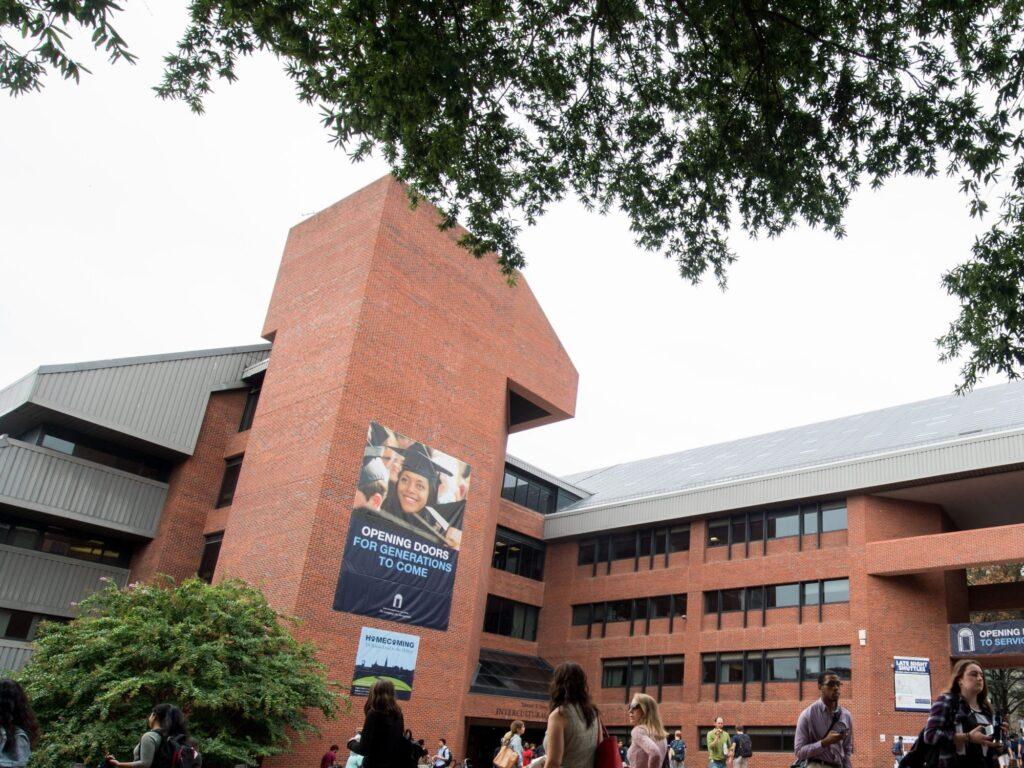A democracy researcher discussed the current state of global governance with students and professors in a March 14 event hosted by the Georgetown University department of government.
Staffan Lindberg, a professor at the University of Gothenburg, spoke about ongoing developments in democratic and authoritarian governments around the world at the event. Students and professors asked questions to Lindberg and his colleague, Evie Papada, a research and policy analyst, regarding trade dynamics and the role of gender in democracy.
Lindberg and Papada are affiliated with the Varieties of Democracy (V-Dem) Institute, an international group that conducts research and provides quantitative ratings of global governments based on their levels of democracy. Lindberg, the director of V-Dem, discussed the institute’s annual democracy report that compiles statistics and contextual information to provide a global outlook on the state of democratic governance.
Lindberg said statistics derived from the macro-level data he studies support the idea that there is a global trend toward autocracy — and away from democracy.
“42 countries autocratized. It’s never been higher in our time series, starting from 1900,” Lindberg said at the event. “43% of the world’s population live in those 42 countries, up from the 5% just 10 years ago.”
Lindberg said this move away from electoral freedom has surprising tangible ramifications, including rising global temperatures.
“The difference between democracies and autocracies is equivalent to a difference of -1.6 degrees in the increase of global warming,” Lindberg said. “Global warming would be 1.6 degrees less if the world was fully democratic.”
Autocratic governments fare much worse than their democratic counterparts in terms of regulating the climate and reducing warming temperatures, according to a study published by the V-Dem Institute.

While these recent developments are concerning, Lindberg said global bright spots that have been successful in building fair and democratic governments through citizen protest and activism teach the global community lessons about governance.
“In South Korea, there were 2.3 million people on the streets at the same time,” Lindberg said. “Sudan — it’s not exactly heaven there now — unseated a long-standing dictatorship in Africa with popular mobilization.”
Despite theories suggesting that trading with autocratic governments pushes them toward democracy, evidence collected by V-Dem and other researchers refutes this proposition.
“Trading with autocracies would liberalize them and lead to pressures for democratization — it just doesn’t seem that the empirical patterns support that much,” Lindberg said. “It hasn’t helped much with Russia, either.”
Lindberg also said the democratizing actions of powerhouse countries positively impact smaller nations struggling against autocracy.
“The countries that are defying autocratization are small,” Lindberg said. “When you have big global trends where big powerful countries are involved, they tend to drag some along.”
Lindberg said that in looking at data, factors that seem promising are often not accurate indicators of the state of democracy.
Lindberg cited the specific example of Belarus, a Russian satellite state with an authoritarian government and a leader many view as a dictator. Certain facets of the country’s political system, including legal codes and legislative power, would seemingly hint at increased democracy, but Lindberg said these are deceptive.
Lindberg said the V-Dem Institute in the future may reconsider the way it studies gender and global governance in light of recent pro-democratic movements led by women.
“There is a lot of correlation and theoretical intuition that democracy is about political equality, and in modern times, at least, that means equality between men and women,” Lindberg said. “The need in democracies is for women to have more important positions, then you get more of a real equality, not just to showcase women in legislatures that have no influence.”





















